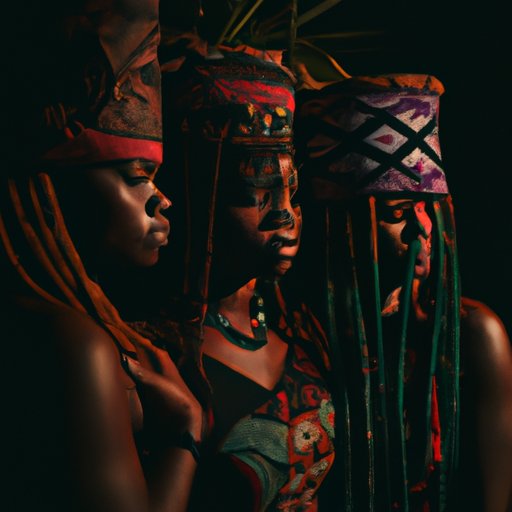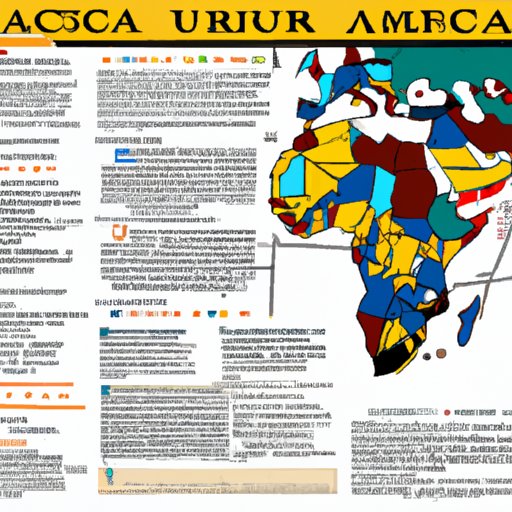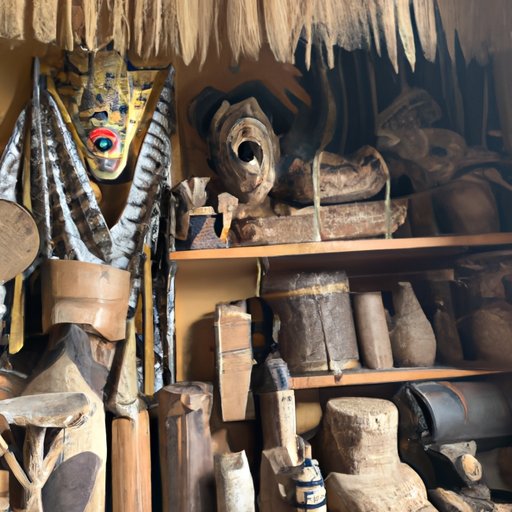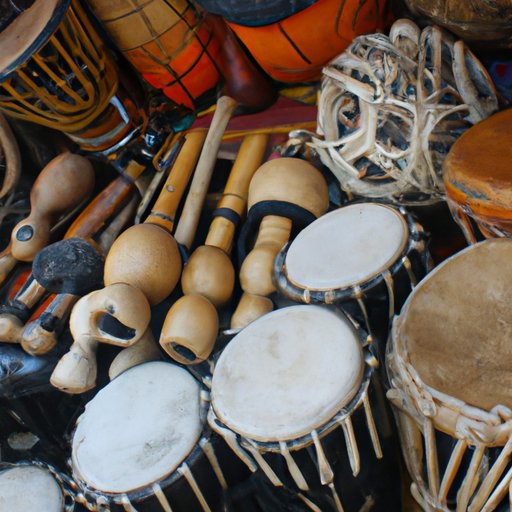Introduction
African culture is a term used to refer to the distinct and unique cultures of the people who inhabit the continent of Africa. It encompasses a wide range of cultural elements, including language, religion, music, art, clothing, cuisine, and many other aspects of life. This article will explore the diversity, traditions, and changes that have taken place in African culture throughout its rich history.

Exploring the Diversity of African Cultures
The African continent is home to a vast array of different tribes, each with its own unique culture. Different regions within Africa also have their own distinct cultural identity. For example, North Africa is heavily influenced by Arab culture, while East Africa has a strong Indian influence. These regional variations can be seen in the food, clothing, language, and other aspects of everyday life.
Investigating the Traditions and Beliefs of African Tribes
Traditional African religions are based on a belief in the power of ancestors and nature. Animism, the belief that all things have a spirit, is an integral part of many African cultures. Social customs and practices are also important in African societies, such as respect for elders and hospitality. Many African cultures also have initiation rites that mark the transition from childhood to adulthood.
Understanding the Role of Music in African Culture
Music has always been an important part of African culture. Traditional African music is often highly rhythmic, with drums and percussion instruments playing a major role. Different styles of music are found throughout the continent, from the high-energy dance music of West Africa to the more laid-back sounds of East Africa. Music plays an important role in African society, serving as a form of communication and a way to express emotions.

Examining the Impact of Colonialism on African Cultures
Colonialism had a major impact on African cultures. European powers imposed their own laws and customs on the people they colonized, resulting in significant changes in African societies. These changes included the introduction of new religions, languages, and forms of government, as well as the suppression of traditional African customs and beliefs.

Exploring African Arts and Crafts Through History
African art and crafts have a long and varied history, dating back to ancient times. The traditional arts and crafts of Africa include pottery, basketry, weaving, jewelry-making, and carving. African art is known for its bright colors, intricate designs, and symbolic meaning. African crafts are often used to tell stories or convey spiritual messages.
Conclusion
African culture is incredibly diverse, with each region and tribe having its own unique customs and beliefs. Music, art, and crafts play an important role in African societies, providing a way to express emotions, communicate ideas, and remember the past. Colonialism had a major impact on African cultures, introducing new religions, languages, and forms of government. Overall, African culture is a rich tapestry of tradition, art, and music that continues to evolve and adapt in the modern world.
(Note: Is this article not meeting your expectations? Do you have knowledge or insights to share? Unlock new opportunities and expand your reach by joining our authors team. Click Registration to join us and share your expertise with our readers.)
